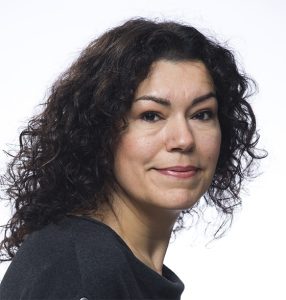Depolarisation
It is no coincidence that the Betzavta program has been developed by the Adam Institute for Democracy and Peace in Jerusalem where it started a depolarisation training program in co-creation of Jewish and Palestinian educators, trainers and attendees. This program is centred around a down-to-earth sense of democracy, tolerance and human rights.
Therefore, the name Betzavta is very suitable. It means “together/with each other”. Betzavta has successfully been applied to teambuilding and conflict resolution training, as well as Inclusion and allyhip trainings since 1996.
Analysing conflict
Betzavta, the Adam Institute’s facilitation method, considers the freedom to develop oneself as a universal right for all individuals, cultural- ethnic and national groups. Therefore, the training program is perfectly suited for conflict situations. Confronting and challenging exercises, activities and discussions will grow the democratic awareness of the participants. Furthermore, it will expand the insight into dilemmas that occur when personal rights collide. The method entices participants to explore and analyse external conflict and redefine them as internal dilemmas. They become aware of the choices they make and what impact these might have on others. Instead of the black or white, all or nothing option, the participants will start looking for a solution that is beneficial to all parties involved.
Open and equal
In Betzavta it is all about experience-based learning, about open and equal communication. Various themes (democratic principles, minorities – majorities, basic human rights, equality in law, democratic decision-making) are introduced through exercises in the form of games. Personal points of view, values, behaviours and solution strategies are experiences on an individual level. Intensive reflection caters to a greater recognition that a solution to a conflict is only possible when you take everyone involved into account. Not the conflict but the dilemma becomes the main focus. That creative conflict resolution becomes the basis of a new frame of thinking for participation, carried by all those involved, without fleeing in temporary compromise.
Betzavta makes participants realize that you will always have to choose between two alternatives, that you cannot have it both ways. The necessity of choosing confronts them with the difficulty of letting go of something they deem important. By doing so, they will become able to, more easily, identify with others who, like them, had to choose between two or more alternatives.
The trainers protect the participants. Not by preventing conflict but by exposing the conflict in a safe environment. First, the needs and the dilemma behind the conflict is gauged, only then will the participants start looking for a solution together. This way, they will get to know multiple options for action and other points of view. This offers alternative possibilities for dialogue.
Empathize
Are the participants able to empathize with others? What does it mean to live democratically? The starting point is always very accessible, from everyday life, a professional situation or other societal context. In this, Betzavta differs from the more traditional political forming- or teambuilding sessions. The development of the individual sense of norm, a better understanding and appreciation for the workings of democratic processes are the main focus of the approach.
Objective
Whether on macro-level (between nations) or on micro-level (in families or a professional environment), everyone will have to deal with conflicting interests. When this happens, polarisation becomes a real threat. Processes won’t come to fruition or stagnate because a shared framework is missing. When differences in communication and culture amplify mutual misunderstanding, a Betzavta training offers a solution. In a society rife with diversity and distinction, Betzavta has proven to be a useful instrument to stimulate awareness and build stronger bonds.
Betzavta offers an array of possibilities to guide processes that cause murmer and conflict, such as conflicting interests because of a missing shared framework, differences in communication and cultures, ethical dilemmas and issues of diversity.
An intensive, multi-day start emerges participants in the processes that play a part within groups. Everyone gets the freedom to investigate their role within the group and connect that to their own workplace.
The Betzavta training courses are intended for a broad audience of coaches, trainers, HR professionals and teachers. The courses are divided into three 1-week modules: ranging from introductory training exercises and in-depth reflections to individual accompaniment assignments and a course towards becoming a certified Betzavta trainer.
Successful pilot Within the Pedagogics department of Fontys university, the pilot Betzavta as a module of the curriculum (K4- conflict resolution) has come to an end and has received a very positive evaluation. The module has now become mandatory for all students.
When
Send a message to info@seyda.nl or fill in the request form. As soon as new dates are available, you will receive notice.
Click here for the next dates.

